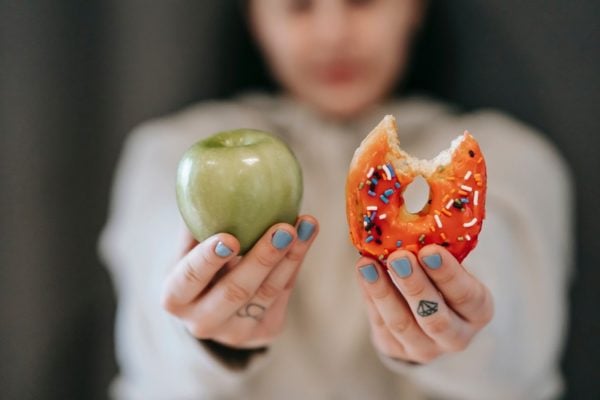If you Google “how to form a new habit,” you’ll receive no fewer than 2,450,000,000 results in an astonishing .58 seconds! Some of the top contenders include:
- 5 Step Solutions To Building A New Habit
- 18 Tricks to Make a New Habit Stick
- How to Form a New Habit in 10 steps
Along with about 2 billion other methods. Who’s got time for that? So why is all the hype and effort spent on this little idea, and why does one need so much help to form a habit anyway? In my almost 40 years on planet earth, I have a couple of ideas without resorting to Google. In this article, we’ll cover the simple steps to forming a successful new habit that requires little effort but yields significant results.
What Is A Habit?
But first, what is a habit? According to the Oxford Dictionary, a habit is defined as “a settled or regular tendency or practice, especially one that is hard to give up.” Habitual behavior often goes unnoticed in persons exhibiting it because they do not need to engage in self-analysis when undertaking routine tasks. Habits are sometimes compulsory.
In fact, a 2002 daily experience study by habit researcher Wendy Wood and her colleagues found that approximately 43% of daily behaviors are performed out of habit.
New behaviors can become automatic through the process of habit formation. However, old habits are hard to break, and new habits are hard to form because the behavioral patterns humans repeat become imprinted in neural pathways. Still, it is possible to develop new habits through repetition.
How Are Habits Formed?
When behaviors are repeated in a consistent context, there is an incremental increase in the link between the context and the action. This increases the automaticity of the behavior in that context, creating a habit.
Features of automatic behavior include a lack of awareness and unintentional or uncontrollable behavior. That’s why habits can be so hard to form or break because they happen without us even giving much thought to them.
There are many reasons people do something “out of habit” that may not be a functional or healthy habit at all but more a way to cope or deal with stress etc. These habits are more likely adopted out of survival, not by conscious choice. But on the other end of the spectrum, I’m sure we all have that friend who swears that they wake up at 5 am every day to practice gratitude and exercise before the kids get up to start their day off right. Believe me, if I could form that habit, I would, but my body does NOT like to get up before 6 am.
What Do Habits Mean To Different People?
Habits can mean different things to different people. Some may enjoy incorporating fun colors into their outfit daily, while others may only buy organic food. Other people may get into the habit of listening to the same playlist every morning to get ready and have fun. Some may have habits and not even recognize them as habits!
With this thought, I wanted to recognize how many habits I have in my everyday life. So here’s an example of what it looks like to me:
- The alarm goes off at 6:00 am, and I lay in bed as long as possible.
- Catch up on news and social media while I walk my dog and make coffee
- Stay patient during the morning hustle of breakfast and getting ready for the day.
- Doing my best at work while still taking time for myself.
- Come home and meditate.
- Prepare dinner and bone with family, clean, and start our bedtime routine.
- Start my nighttime routine of washing my face, brushing my teeth, and ensuring my husband feels heard and supported.
- Take the dog out one more time.
- Go to sleep and repeat.
Is It A Habit Or A Routine?
But are these habits or routines? According to Google, “A habit is an impulse to do a behavior with little or no conscious thought. Not doing a habit feels uncomfortable, like not washing your hands after using the toilet or not flossing your teeth before bed. On the other hand, a routine is a behavior frequently repeated.”
So this changes my list and understanding a bit and would mold it into something like this:
- Staying connected to family, friends, and important world events
- Caring for family, friends, and myself to set an example of how I want to be loved
- Finding reasons to enjoy my job and the people I work with
- Meditation to overcome my constant feelings of overwhelm and anxiety
- Keeping a clean and organized house to feel calm and not over-stimulated by chaos
- Excessive face wash and a self-care bedtime routine to honor this body I inherited and practice loving myself
This new list is an excellent start to recognizing my personal habits. I realized they are all designed to help me navigate my life and feel loved. As Google stated above, if I left my house a mess when I left for work in the morning, I would feel crummy all day. If I didn’t set boundaries and make time for my new meditation practice, I would feel the repercussions of not taking care of myself and spinning out of control. If I didn’t listen to my NPR podcast and thought-provoking reads throughout the day, I would get bored of looking at things the same way and not staying educated. These are what my habits are to me.
Good Habits Form From The Subconscious
Good habits form out of the subconscious. This is the part of your brain you cannot control but knows what you need. That New Year, New You Resolution you make every single year doesn’t work because your subconscious doesn’t want to make a drastic change that doesn’t feel natural.
Your conscious self wanting to lose weight or keep up with those 5 am productivity people is not powerful enough to tap into and change the subconscious. But the subconscious knows if you feel good or not. That is its job.
It knows before your conscious knows! This is your gut feeling about a person or situation, or even if gluten makes you ill before you even run tests. For example:
- My subconscious knows I feel better when I know where things are in my house because it is clean and organized.
- Additionally, my subconscious knows I cannot continue ignoring my needs by numbing and self-medicating to deal with stress etc.
- My subconscious knows I feel my best when I love myself first so I can love others the best way possible. And so these “habits” have naturally formed in my life. Everything else is just a fad or institutional noise.
How To Form Good Habits For Yourself
Getting in touch with yourself, listening to your gut, and getting curious about why you feel certain ways about things will naturally uncover habits that the subconscious is excited for you to adopt!
For example, if you hate making dinner every night for the family, maybe your subconscious is waiting for the opportunity to form a meal-planning habit. Likewise, if you feel exhausted at the thought of starting a workout routine, give your subconscious the freedom to explore walking in nature instead.
If you’re feeling lost, stuck and unmotivated in general? Maybe this is your subconscious telling you that it is time to make that change you’ve been dreading and that it will free your soul to live a healthier and more authentic life! What do you have to lose?
This may sound crunchy and cheesy, whatever you want to call it. However, there is something so freeing in knowing that my body does not function before 6 am! Great, moving on to something better that I actually can achieve! Try applying this same thought process to any other situation you may feel stuck in.
Wrapping It Up
When starting a routine, it’s essential to make sure you’re doing something that resonates with your spirit. So try to forget about Google and all these different “step tricks” to form a new habit. Instead, try listening to your heart and soul and naturally form habits that can help you be the best you and have the best days ever! You have all the tools already!




